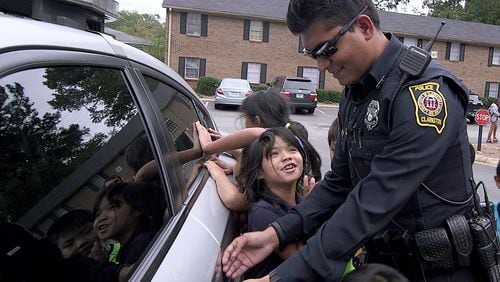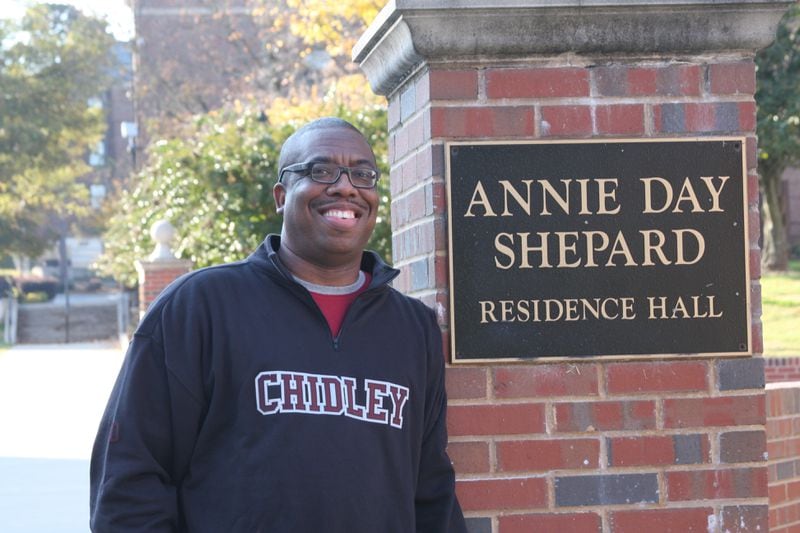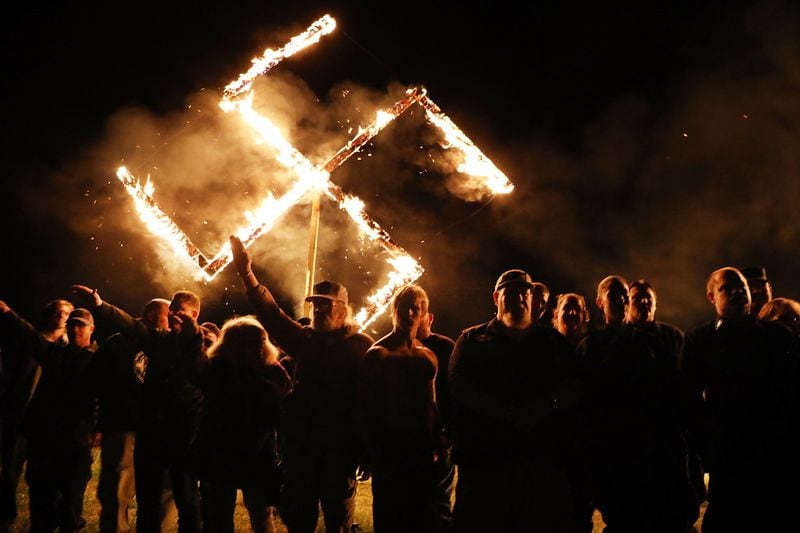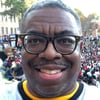It seems fitting, maybe symbolic that the Atlanta Journal-Constitution's RE:Race project effectively ended on April 9.
That was the day that Rosalind Bentley and I reported on the 50th anniversary of the funeral of Martin Luther King Jr., which capped off our extensive coverage of his life and his impact on the nation a half-century after his assassination.
For more than a year, Roz and I, along with Bo Emerson, Helena Oliviero, Erica Hernandez, Pete Corson, John Perry and our retiring editor, Richard Halicks, tried to, as the project’s tagline suggested, show “how we experience race and ethnicity in Georgia.”
And the stories were not just about black and white. We did stories on what it means to be Puerto Rican in America, what it means to have people question “what” you are, and the racial politics of commuting on MARTA.
- Oliviero introduced us to the "New Americans" with her series on immigrants in Atlanta.
- Perry took us on an extraordinary bike ride on the Trail of Tears with his young cousins from the Cherokee Nation.
- Emerson explored the remarkable racial and ethnic transformation of Cobb County, the last core metro county that is still majority-white.
- Bentley told the stunning story of two Roswell churches, one white, one black, seeking racial reconciliation.
- Higher ed reporter Eric Stirgus and I teamed to produce a series on the struggles and triumphs of historically black colleges.
- All of it was set to videos and visuals produced by Hernandez, with data analysis by Perry and sharp presentations by Corson.
It was our intention to tell the story of race in America by telling the story of race in Atlanta.
I think we did that.
Credit: Photo courtesy Ernie Suggs
Credit: Photo courtesy Ernie Suggs
I have worked at The Atlanta Journal-Constitution for 20 years now. Although I have covered everything from night cops to higher education to city hall, I have always fancied myself as the paper's race reporter.
I have had a hand in every major local race-related piece of news printed in the AJC over the last two decades and as my role has expanded, nearly every national one as well.
I have written the obit of every fallen civil rights leader, and on occasion, when my coverage was deemed too tough, have been called a traitor to my race.
I have relished all of it, mainly because I know this work is needed. These stories need to be told.
So even as the project has officially come to a close, the audience should know that the work will continue. It is too important. Especially in a time when people are trying to make America great.
I felt good about America last month, in fact. I was still on a Beyoncé high after her stunning performance at Coachella, in which she paid tribute to America's black college traditions. She even gave me an excuse to write about the historic and cultural significance of her rendition of "Lift Every Voice and Sing."
Credit: Kevin Winter
Credit: Kevin Winter
‘What about black people?’ I asked
Later, my 20-year streak of not winning a Pulitzer Prize was soothed by the fact that Kendrick Lamar won. I was feeling pretty good, when Richard assigned me a story about an upcoming neo-Nazi rally in Newnan.
A colleague who covers white supremacy — yes, we cover it — gave me a number of one of the leaders of the rally. I had already talked to city officials, the police, shop owners and black leaders. I offered my co-worker the courtesy of calling the white supremacist for me. He politely declined.
When I got the guy on the phone, he was friendly enough. Even when I asked him why was he doing this and what he would say at the rally.
He calmly told me about how “illegals” are destroying the country and needed to be rounded up in camps. How homosexuals were pushing their agenda on us.
I listened. Then there was a pause. He knew the next question was coming.
“What about black people?” I asked.
The white supremacist, who lives in Florida, asked me if I lived in Atlanta. I said yes.
He told me about the “infestation of African-Americans. If you go through the neighborhoods they are all ghettos. Black people in Georgia and everywhere tend to flock to cities. They are like a virus, they consume natural resources. They spread and move on. They ruin everything they touch.”
He paused. He knew I was black and expected a fight.
I was amused that he was kind of paraphrasing Lamar’s “Mortal Man,” when the Pulitzer Prize-winner said: “The caterpillar is a prisoner to the streets that conceived it. Its only job is to eat or consume everything around it.”
»RELATED: The Death of Martin Luther King Jr. 50 years later
Neo-Nazi to reporter: ‘Don’t slander me’
But I was too busy thinking about the black people of Atlanta, of whom I am one. He didn’t consider the fact that aside from politics, black civic, business and entertainment interests have made Atlanta one of the most desirable locations in the world for business, living and pleasure. And yeah, a civil rights movement birthed here helped change America.
But I could barely muster the energy to tell him or to fight with him.
I asked him if that was it and tried to end the call.
Before I hung up, he said, “Don’t slander me.”
“What?”
“Don’t slander me.”
“Sir, I work for the Atlanta Journal-Constitution. (I know I sounded like a broke Sidney Poitier). We don’t do that.”
When I finally hung up the phone, I dutifully wrote my story – without a hint of slander.
Then I watched as two black men got arrested in a Starbucks for sitting down. I watched how an eighth-grade class in Texas was asked on a test to list the "positive aspects" of slavery. I watched how a white man in Tennessee walked into a Waffle House and slaughtered four young minorities. I sifted through more than 600 accounts of how black and white men and women were lynched right here in Georgia. And I gotta deal with Kanye.
I got back to work.
About the Author










